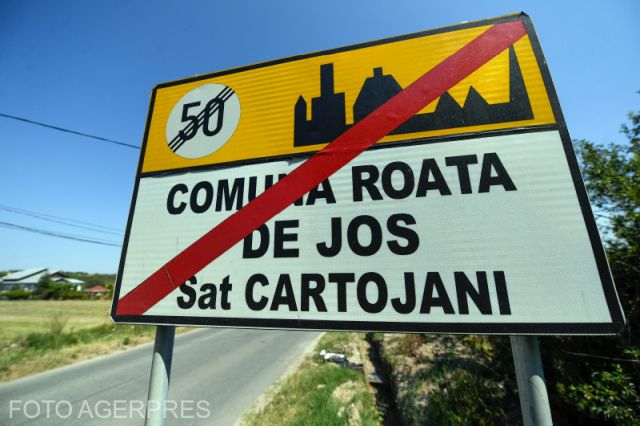Local lockdown
The sudden rise in the number of new coronavirus cases in Romania may lead to local lockdowns.

Roxana Vasile, 24.07.2020, 14:00
Romania has seen in recent days around 1,000 new
coronavirus infections a day from a little over 100 when lockdown restrictions were
first eased, on the 15th of May. Bucharest and ten other counties have
the highest number of cases so they may be first to be targeted by stricter
measures under the new quarantine and isolation law that came into force this
week. Two localities, one in Giurgiu and another in Prahova, in the southern
part of the country, are already in lockdown, following a sharp rise in
infections from 3 cases to 1,000.
Prime minister Ludovic Orban says local lockdown may be
imposed at any time based on a justified proposal and with the approval of the
National Public Health Institute:
The set of measures imposed in the case of local
lockdown may differ from one place to another depending on what caused the
spread of the virus, for example whether it was at a wedding, at a religious
event, or at the local bar. The measures to reduce the risk of transmission
will be taken depending on the causes identified during an epidemiological
investigation. One thing is certain: local lockdown reduces the risk for the
inhabitants of a place with a high transmission rate to spread the virus
outside of that area, and this is our main goal. Our second goal is to take
measures within that specific locality to reduce the risk of sick persons
infecting others.
For these reasons, the authorities are keeping a close
eye on 12 localities in Arges county, in the south, where the average number of
new cases has passed 100 every day for the past week. The local authorities are
trying to avoid lockdowns and have stepped up prevention and awareness raising activities
and checks and have approached the people directly, explaining them the risks.
In Mioveni, for example, where Renault has a factory
that manufactures the Dacia cars, the local committee for emergency situations has
approved measures such as monitoring and conducting checks in shops, on public transport
and even on the town’s main street to discourage overcrowding. Public spaces,
including bus stations, are to be disinfected and epidemiological screenings to
be conducted in all places of work. In month’s time, when the factory reopens
after the annual overhaul, all indoor and outdoor spaces and surfaces that
workers come into contact with are also to be disinfected. The Renault group
has donated to the local hospital Covid-19 testing equipment. (CM)






























